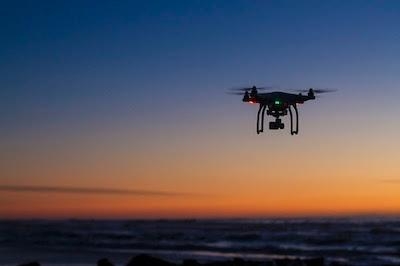LeClairRyan Attorneys Present Webinar Covering FAA's Changing Regulatory Framework
Regulators are formulating rules that stand to affect every part of the American drone industry—and the time is now for stakeholders to make their voices heard, advise veteran aviation attorneys with the national law firm LeClairRyan.

"This year is shaping up as a critical one for regulatory developments affecting operators of unmanned aircraft systems (UAS)," said Mark E. McKinnon, leader of LeClairRyan's UAS practice, "so much so that 2019 could easily be thought of as 'The Year of the Drone.' "
"Is 2019 the Year of the Drone?" was, in fact, the title of a 140-minute webinar conducted on Feb. 27 by McKinnon and fellow LeClairRyan aviation attorney James A. Eastwood. In the deep dive into the changing regulatory framework for UAS, the two Alexandria-based partners in LeClairRyan covered topics such as proposed changes to the FAA's "flight over people" rule; the potential for new safety-related design, performance and payload requirements; new procedures on night flight and waivers; and a raft of other regulatory considerations related to remote-identification, unmanned traffic management and FAA's progress in meeting ambitious mandates from Congress.
By way of background, U.S. Secretary of Transportation Elaine Chao earlier this year unveiled two long-anticipated FAA rulemaking efforts that will have a major impact on the future of the UAS industry, McKinnon told the audience. The first is a Notice of Proposed Rulemaking covering UAS flight over people and at night; the second is an Advance Notice of Proposed Rulemaking seeking public comment on several significant UAS safety and security issues, he said.
Changes to rules about flying UAS over people could have far-reaching effects, McKinnon noted. When it comes to keeping drones away from bystanders or structures, the current rules under Part 107 do not enforce any prescriptive horizontal or vertical distances per se. However, FAA is contemplating changing that, which would bring the United States more in line with Canada, the United Kingdom and certain European countries, all of which do mandate standoff distances, the attorney noted.
"What the FAA wants to know from the American public is, should there be standoff distances for UAS here and, if so, what should they be?" McKinnon said. "It is important for industry to get involved because, if distances are set, there will definitely be costs." Large standoff distances, the attorney explained, could eliminate the possibility of performing many tasks that are routine today. "Standoff distances could also create a need for costly new training protocols, which FAA wants to better understand as well," he said.

Manufacturers would also do well to learn about and comment on the safety-related design, performance and payload requirements now under consideration by the agency, Eastwood added. Today's UAS are capable of speeds in excess of 170 miles per hour, altitudes of over 10,000 feet and climb rates of 6,000 feet per minute, the attorney explained, and yet under today's Part 107 regulations, drones are limited to 100 miles per hour and 400 feet in maximum altitude.
"FAA is looking hard at new limitations based on weight classes, injury potential and other factors," Eastwood said. "Again, industry stakeholders need to work with legal counsel to make their voices heard on these issues. There is broad potential for lost opportunities as a side effect of new limitations."
In the conclusion to the webinar, the attorneys also cover FAA's ongoing efforts to comply with the FAA Reauthorization Act of 2018. The legislation directed the FAA to work faster on setting UAS design standards and opening American airspace to commercial package delivery. In addition, it ordered the agency to produce reports on topics like state and local control of low-level airspace and the need for federal privacy laws. "It is hard to overstate the potential ultimate importance of these nascent rulemaking efforts on the American UAS industry," McKinnon said. "These are potential game-changers."
The webinar is available, free of charge, for audio streaming or download at the FMI link below.
(Source: LeClairRyan news release. Images from file)
 ANN's Daily Aero-Term (04.20.24): Light Gun
ANN's Daily Aero-Term (04.20.24): Light Gun Aero-News: Quote of the Day (04.20.24)
Aero-News: Quote of the Day (04.20.24) ANN's Daily Aero-Linx (04.21.24)
ANN's Daily Aero-Linx (04.21.24) Aero-News: Quote of the Day (04.21.24)
Aero-News: Quote of the Day (04.21.24) ANN's Daily Aero-Term (04.21.24): Aircraft Conflict
ANN's Daily Aero-Term (04.21.24): Aircraft Conflict




